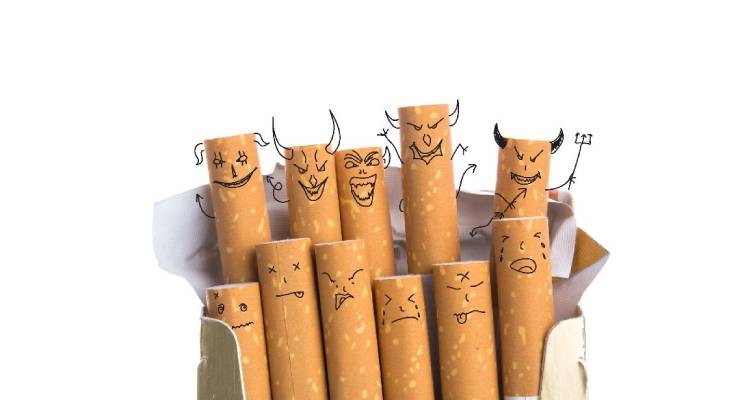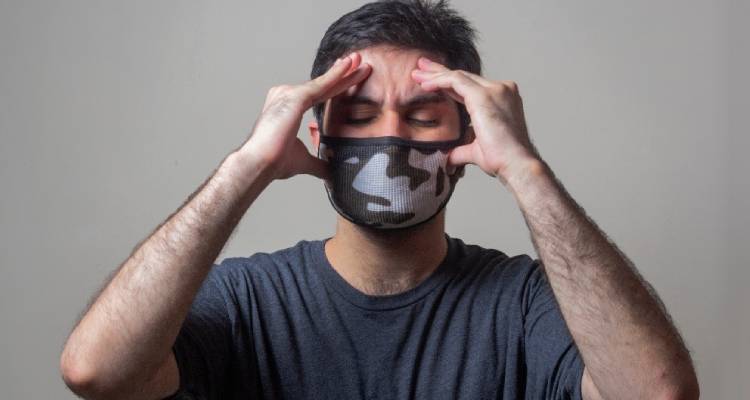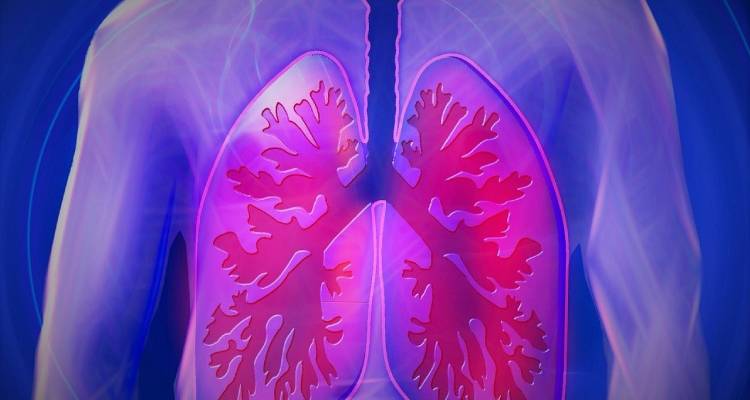The shortness of breath after quitting smoking accept it or not, smoking leads to death gradually. Smoking does not cause death directly, but several chronic diseases emerge because of this 2.5-inch long cig.
Smoking may have many adverse health consequences, such as an elevated risk of contracting severe conditions such as cancer and heart disease. It may also relay to a quick demise.
Shortness of breath after quitting smoking
Smoking-induced diseases are the world’s leading risk factor for death. About 30 percent of all cancer deaths and almost 90 percent of lung cancer deaths are attributed to smoke & cigarette usage. Yet, 18% of people in the United States already smoke tobacco.
Given the immense health benefits offered by the cessation of smoking, this is unfortunate. It is also important to optimize smoking reduction strategies to help curb tobacco use, eventually reducing the impact of diseases, particularly cancer.
Adults who have smoked as children can have lungs that never expand on their potential size and never maximum capacity efficiency. This exists because the young people’s lungs are rising, but tobacco chemicals still burn down lung growth. Such injury is lasting and, later in life, raises the possibility of COPD.
While these dangers are a strong motivation to quit smoking, quitting can be tough for certain people because of withdrawal symptoms. This may include irritability, headaches, and intense cravings for nicotine.
Quitting smoking is a terrible situation for smokers, but it is a truth that “No pain, No Gain.” When you cannot bear the separation of your stogies, you can’t get a healthy lifestyle.
There are many advantages you get after leaving this worst habit
More active and energetic

Smoking is a reason for Shortness of breath after quitting smoking. When you smoke, you inhale a toxic gas, which is carbon monoxide. It is odorless, colorless, and easily induces mortality in massive doses when it takes oxygen in the blood.
The carbon monoxide in blood makes it difficult for oxygen to enter into the lungs and tissues of an individual who smokes. So whenever you quit smoking, you can get rid of this deadlier gas and received a good supply of oxygen to your body, which gives you more energy.
Strong Immune system
The immune system is affected by smoke, and the body is less effective in combating lung diseases. When there is a good supply of oxygen to every cell of the body, it lowers inflammation and various lung infections.
Since leaving smoking, the lungs’ cilia is one of the first parts of the lungs to regenerate. Cilia looks like a small hair, and when air passes in and out of the lungs, they wave back and forth.
They help fight bacteria and remove mucus from the lungs, maintaining the lungs’ best possible condition to battle COVID-19. Reducing inflammation in the body is another short-term effect of stopping smoking. This will lead to improving the immune system.
Upgraded sense of taste and smell
Life is boring without these two senses out of five, and smoking is a factor that causes damage to nerve endings of the lungs and nose and reduces the sense of smell and taste.
The nerve endings continue to develop after only 48 hours of Quit, and the sense of taste and smell start to increase.
Hollywood Smile

Smokers mostly have pale hue teeth and suffer from Halitosis, increasing the chances of oral infection. But when you quit smoking, you’ll begin noticing and feeling a difference in your mouth within a week.
Broken chain of addiction
The brain’s multiple nicotine receptors will return to normal after one month of quitting, ending the addiction cycle.
Improved blood circulation
Within 2 to 12 weeks after avoiding smoking, the flow of blood improves. This makes physical exercise a lot healthier and lowers the chances of cardiac diseases.
Decreased risk of different types of cancer
Chronic diseases, including lung cancer, esophageal cancer, kidney cancer, bladder cancer, and pancreatic cancer, can be prevented by quitting smoking. Still, it may take a few years to recover.
After-effects of quitting smoking

It is a crazy and appreciative step to quit your addiction. It is just like leaving a life partner for many addicts because becoming habitual is more dangerous than love.
Smokers face various temporary problems after quitting this habit, some of these include
Dizziness

It is a common side effect of quitting smoking. As a result, you may get a headache and awful condition after the departure of nicotine from your body. This is because every system in the body is influenced by smoking. Your body has to adapt to not using nicotine after stopping smoking.
Itching in feet and hands
After ceasing smoking, blood starts to circulate in a better way, and because of this improvement, you may feel tingling in your hands and feet.
Excessive hunger
The rise in stamina boosts your appetite; you feel when you stop smoking. Some people often consume more, and they replace tobacco with food, leading to weight gain.
Rage and Irritability
Nothing is more painful than quitting your addiction or habits. When there is a drastic change in your lifestyle occurs, it leads to frustration.
Your mind and body need to adapt to giving up something that you have become dependent on. You’re making a huge change. This also induces depressive moods and frustration.
Mental health problems, anxiety, and Lack of sleep

Smokers have elevated depressive symptoms. To feel better, you could smoke. You may feel more stressed and sad when you stop smoking. Lack of quality sleep is another side effect. But don’t be panic. This side effect is temporary, so be persistent in your healthy life.
Intense nicotine cravings
Your body is nicotine-based because you are a smoker. When it goes without, it will crave it. Cravings peak between 2-4 weeks.
Constipation
The small intestine and the colon are affected by nicotine. You can feel constipation when you take the nicotine out when the body responds to going without it.
Breathlessness after quitting smoking
If you have been smoking for a bit, if you can’t breathe as well, it shouldn’t be a surprise. Lung cancer remains at the forefront of the many health issues that come with consuming tobacco.
You do not know, though, that you may have brief stints where you quit lighting up, where you can’t catch your breath. You hurt your lungs when you smoke. If you have finished, it will take them a while to recover.
Cigarettes damage cilia, however, and smokers sometimes experience trouble breathing because of this. The development of mucus in the lungs, which can block airways and cause recurrent infections, is often increased by smoking.
Smokers also produce a wheezing, phlegmy cough with fewer cilia to clear the airways and abnormally dense mucus forming a crust on top of them. Simultaneously, the body uses secondary processes to clear the airways and dissipate the accumulated mucus from the lungs.
There may also be disruption from smoking to other elements of the respiratory tree. The bronchi, tubular branches that disperse air from the trachea into the lungs, are connected to the bronchioles, increasingly smaller branches that constantly separate until they exceed microscopic sizes, leading at the end of the bronchioles to the alveoli, small clustered air sacs.
Inflammation, hypertrophy, and fibrosis in the bronchi and bronchioles can be caused by smoking and can kill alveoli. This disease, called emphysema, lowers the surface area.
The lungs and bloodstream can exchange oxygen and carbon dioxide and reduce the airways’ flexibility. In a relatively short amount of time, cilia can regrow and return to healthy, natural function in the respiratory system, but only after smoking ceases.
Inflammation will subside, and mucus production levels will return to normal without toxins’ persistent involvement in the lungs and airways.
You’ll find a reduction in wheezing and coughing after a month of leaving. As carbon monoxide, which interferes with oxygen transport by binding to red blood cells in its place, is cleared out of the bloodstream, the breathing will become less laborious.
That’s because the body has an amazing capacity to repair itself. Still, when trauma is continuously done, it can’t do so successfully.
Shortness of breath after stopping smoking

You could realize you’re coughing a lot, maybe even more than when you were smoking, if you just stopped cigarettes. This is an indication of good cilia regrowth in the lungs.
It’s also how the lungs speed up the process of regeneration by dissipating accumulated mucus and other built-up particles. The method may be painful and push certain individuals back to cigarettes’ false warmth, but it’s ultimately a good sign.
Coughing Relief After Stopping Smoking
A natural supplement called Lung Support Formula has created these remarkable and exciting findings. It’s a daily supplement that uses traditional Chinese medicine values to encourage lung health and function.
U.S. Established Lung Support pairs natural botanical extracts with minerals and antioxidant supplements, both clinical and approved by the Advisory Board of Physicians.
These ingredients together offer calm anti-inflammatory assistance while facilitating improved lung strength. Lung Support functions in three major ways:
Lian Qiao soothes inflammation in the lungs and throat. This natural extract of forsythia allows you to relax more deeply and minimize irritation-induced coughing.
Promotes the development and expectoration of good mucus with radix ophiopogonin. The body uses mucus to capture bacteria and viruses in the respiratory tract before coughing them out.
This defensive mechanism is encouraged by Lung Support by helping the body generate safe quantities of mucus, loosen it and remove it as required. Supports good lung tone and Asian ginseng function.
Asian ginseng has long been used in herbal blends that encourage lung protection during smoking cessation, as a staple in many traditional Chinese remedies.
Added cordyceps extract allows the body to use oxygen more effectively and can provide antioxidant support and improve lung potential.
For Healthier Lungs, Stop Smoking!
Since we do not know precisely which smokers are likely to develop lung disease, patients should know from Smoking that Smoking is very dangerous for them.
Many extreme chronic lung conditions are caused by smoking. Children and adolescents who smoke can harm their lungs. Smoking abstinence increases respiratory function and decreases the risk of lung cancer.
Find a Specialist to help you quit smoking
You can help a doctor avoid smoking. Talk to your physician if you are able to quit, or find a physician to support you avoid. A doctor will speak to you about drugs to support you avoid or contact nearby services.
READ THIS NEXT
How to Wrap Natural Hair with a Scarf
Top 10 Best Hair Growth products
How many Calories in a chicken leg
What happens When Kidneys fail Causes Signs
